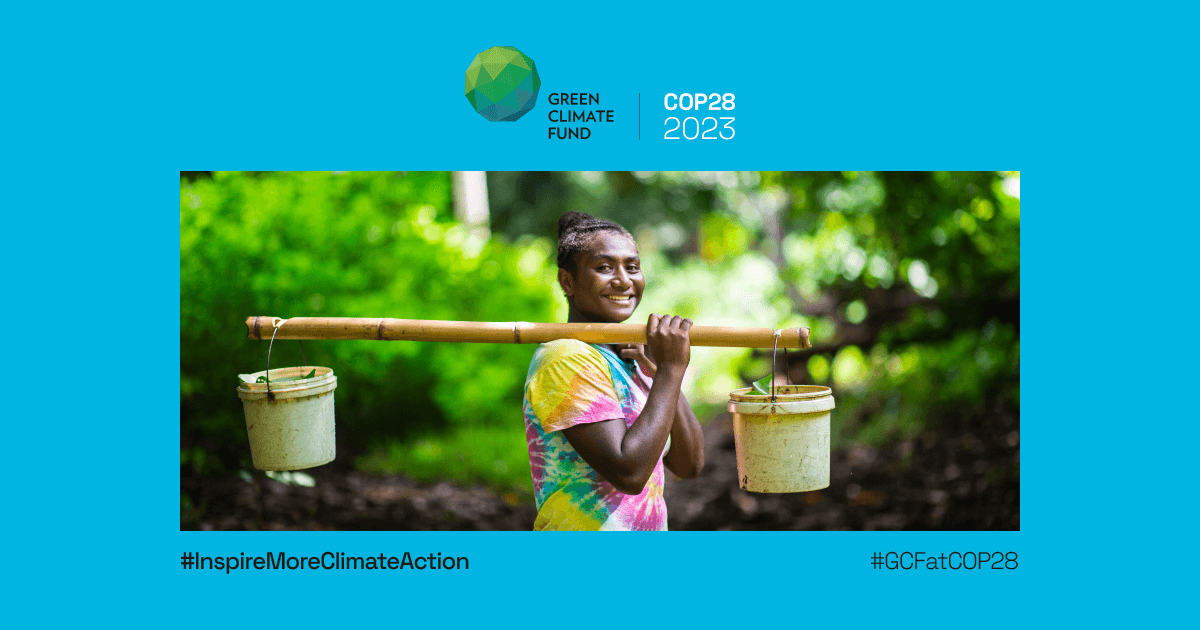In an era defined by the escalating climate crisis, the intersection of climate change and public health has emerged as a critical battleground, underscoring the urgent need for collaborative and innovative solutions. A landmark development in this global endeavor has materialized through the historic alliance between the two largest multilateral climate and health funds: the Global Fund to Fight AIDS, Tuberculosis, and Malaria, and the Green Climate Fund. This groundbreaking collaboration, unveiled at the COP28 United Nations climate summit in Dubai, signifies a pivotal step towards addressing the far-reaching impacts of climate change on the health of the world’s most vulnerable communities.
As the Executive Director of the Global Fund, Peter Sands, articulates, the relentless march of the climate crisis exacts a disproportionately heavy toll on those who have historically contributed the least to environmental degradation. The unfolding scenario presents a stark reality where climate threats further strain already inequitable health systems, amplifying health disparities and leaving communities on the brink of profound humanitarian challenges. In response to these pressing issues, the alliance focuses on a targeted approach, specifically addressing the human health impacts of climate change, with emphasis on diseases such as malaria and the reinforcement of health systems. This collaborative commitment is not just a response to a shared challenge; it is a strategic move to transform the landscape of global health and climate resilience through unified action.
Global Fund and Green Climate Fund: A Brief Overview
The Global Fund, operating as a worldwide partnership, raises and invests over US$5 billion annually to combat HIV, TB, and malaria, strengthen health systems, and enhance pandemic preparedness in over 100 hard-hit countries. Since its inception in 2002, the Global Fund partnership has saved 59 million lives. On the other hand, the Green Climate Fund stands as the world’s largest dedicated climate fund, with a mandate to drive a paradigm shift towards low emission, climate-resilient development in developing countries. Boasting a portfolio of USD 13.5 billion, GCF delivers transformative climate action in more than 120 countries.
Unprecedented Alliance to Address Climate Health Impact
In a groundbreaking collaboration, the two largest multilateral climate and health funds, the Global Fund to Fight AIDS, Tuberculosis and Malaria, and the Green Climate Fund, have announced their commitment to jointly address the far-reaching impact of climate change on the health of the world’s most vulnerable communities. This historic alliance was unveiled during the COP28 United Nations climate summit in Dubai.
Inequities Exacerbated: Climate Crisis and Health
Peter Sands, Executive Director of the Global Fund, emphasized that while the threat of the climate crisis is universal, its speed and severity disproportionately affect vulnerable communities. Communities that contributed the least to the climate emergency are now bearing the brunt, as climate threats strain already inequitable health systems. The collaboration aims to specifically address the human health impacts of climate change, with a focus on diseases such as malaria and the reinforcement of health systems.
Guiding Principles for Financing Climate and Health Solutions
Amidst the urgency, estimates reveal a stark reality – only 0.5% of multilateral climate funding is allocated to projects explicitly addressing human health, and a mere 5% of climate adaptation funding is directed towards health projects. In response, the Global Fund and Green Climate Fund, in partnership with the COP28 presidency, the Rockefeller Foundation, and the World Health Organization, have introduced the Guiding Principles for Financing Climate and Health Solutions. This marks the establishment of a shared vision, guiding the financing of climate and health solutions to protect communities from climate risks and build resilient, environmentally sustainable health systems. These principles have gained endorsement from major organizations and networks.
Addressing Health Emergencies and Climate Inaction
Mafalda Duarte, GCF Executive Director, expressed enthusiasm for this unprecedented partnership, highlighting that many current health emergencies are a consequence of climate inaction. Through collaborative efforts, the alliance aims to raise awareness regarding the health costs of insufficient climate action and prepare health systems to respond to the impacts that are already inevitable.
Paving the Way for Intersectional Funding
This partnership seeks to amplify funding at the intersection of climate and health by aligning resources, aiding countries in assessing needs and accessing financing, and accumulating evidence of effective interventions. The goal is to foster a comprehensive and coordinated approach to address the complex challenges arising from the intersection of climate change and public health.
Climate Commitment in Accordance with Paris Agreement
As an operating entity of the financial mechanism of the United Nations Framework Convention on Climate Change (UNFCCC), the Green Climate Fund aligns its efforts with the 2015 Paris Agreement. The fund supports the overarching goal of keeping the average global temperature rise well below 2°C, marking its integral role in addressing the urgent climate challenges faced by nations worldwide.
This collaboration between the Global Fund and the Green Climate Fund not only signals a crucial alliance between climate and health sectors but also paves the way for a unified approach to mitigate the profound impact of climate change on global health. The Guiding Principles for Financing Climate and Health Solutions lay the groundwork for a coordinated response, emphasizing the urgency and importance of addressing the health implications of climate change.

